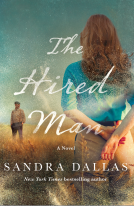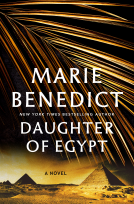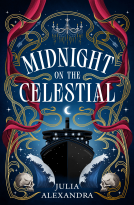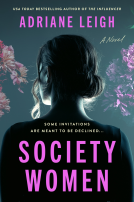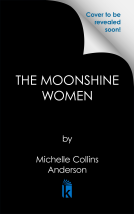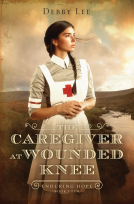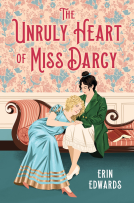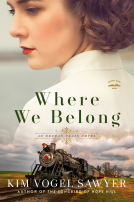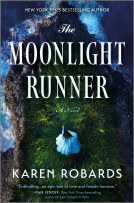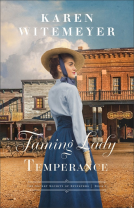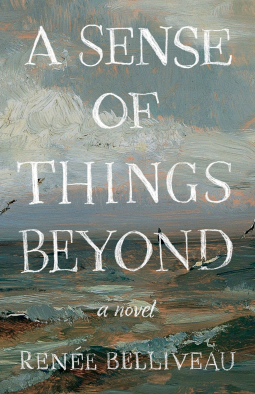
A Sense of Things Beyond
a novel
by Renée Belliveau
This title was previously available on NetGalley and is now archived.
Send NetGalley books directly to your Kindle or Kindle app
1
To read on a Kindle or Kindle app, please add kindle@netgalley.com as an approved email address to receive files in your Amazon account. Click here for step-by-step instructions.
2
Also find your Kindle email address within your Amazon account, and enter it here.
Pub Date Sep 04 2025 | Archive Date Jul 25 2025
Nimbus Publishing | Vagrant Press
Talking about this book? Use #ASenseofThingsBeyond #NetGalley. More hashtag tips!
Description
A gorgeous work of literary historical fiction exploring what is commemorated and what is forgotten in times of war, from the ReLit?nominated author of The Sound of Fire.
Only the names of those unable to speak are honoured. Only the names of those long silenced, those who could never rise to refute the distorted narrative, are preserved in stone.
In the aftermath of the First World War, two souls struggle to find their place in a world they no longer recognize. Rose, a nurse who tended to the wounded near the frontlines, has returned to her quiet life in Toronto to find that her family home no longer offers any comfort. Only a few years earlier, she reached France brimming with eagerness to contribute, but as she found herself healing soldiers only to send them back to the trenches, the senseless brutality of war became clear?especially once her nephew Leo enlisted.
Meanwhile, Frederick is trying to reclaim the thread of his life interrupted by war. On the verge of completing his PhD when Germany declared him an enemy alien, he spent the next four years languishing in an internment camp, where thousands of men from the British Empire crowded into unheated horse stables. But now he wonders if his anger at his unjust treatment was misdirected.
Their paths cross as each is trying to bridge the chasm between who they once were and who they have become. As Rose and Frederick navigate the fragile promises of a new world, their shared sense of disillusionment becomes a language of its own. Might they find solace in each other?
Past and present intertwine in A Sense of Things Beyond, revealing how each shapes the other. It is a gorgeously written examination of what comes after war, and how we hold remembrance.
Advance Praise
“A deeply emotional, haunting story about the secrets buried during wartime and the heartbreaking lessons that follow, A Sense of Things Beyond explores how to face the past once more, how to bring those secrets into the light, then how to live again.”
–Genevieve Graham, bestselling author of Bluebird and The Secret Keeper
“In this poignant novel, Renée Belliveau challenges us to have compassion for our enemy. To reconsider how the vanquished are punished. And above all, to question the rhetoric that glosses over the carnage that is war. Through the eyes of a front-line nurse and a man interned in a civilian detention camp outside Berlin during the First World War, Belliveau recounts not only the brutal experiences of those who took up arms, but of those they left behind—the millions who were witnesses to the inhumanity of war. And yet, somehow, in this novel, we are in gentle hands. This is a story that is tender, hopeful, and eminently eye-opening.”
–Christine Higdon, author of Gin, Turpentine, Pennyroyal, Rue
“Echoing the unimaginable loss of a generation in Vera Brittain’s epic WWI memoir, Testament of Youth, Belliveau’s compelling and poignant A Sense of Things Beyond takes aim at the hypocrisy of the Imperial war machine and highlights the oft overlooked efforts of women who laboured under horrific battlefield conditions only to return to a life that sought to erase their efforts. Shifting in timelines from bucolic beachcombing in Nova Scotia to festering, overcrowded field hospitals, to an alien detention camp in Berlin, Belliveau’s characters deftly exist in a kind of half-life, burdened by the secrets they hold, searching for a balm for hidden wounds. Redemptive, profound, and gorgeously crafted.”
—Stephens Gerard Malone, author of Jumbo and The History of Rain
“Renée Belliveau illuminates the dark corners of history to reveal lesser known perspectives from the First World War. In the aftermath of all those awful battles, whose stories get remembered, and whose fade into oblivion? Can some type of deeper healing come from remembering the forgotten, and recognizing that war is never glorious? In questioning the myths we’ve been told about this transformative period, A Sense of Things Beyond tackles hard topics, but also unfolds as a tender love story about two people grappling with war’s intangible wounds.”
–Kristen den Hartog, author of The Roosting Box: Rebuilding the Body After the First World War
Available Editions
| EDITION | Other Format |
| ISBN | 9781774714522 |
| PRICE | CA$24.95 (CAD) |
| PAGES | 264 |
Available on NetGalley
Average rating from 14 members
Featured Reviews
I received an advance review copy for free, and I am leaving this review voluntarily. What a beautiful story. I loved the jump between past and present. The way the 2 main characters had their lives intertwine was lovely. Every scene was described in detail to where I almost saw it playing out like a movie in front of me. This is an appropriate book for the state of the world right now and a reminder of the struggles of war and what comes after.
Quietly devastating and beautifully told. A Sense of Things Beyond explores the lingering wounds of war, memory, and identity with tenderness and depth. A powerful portrait of love, loss, and remembrance.
 ana w, Reviewer
ana w, Reviewer
I really loved this book, the vibe and story touched my heart so much. I will read it again someday.
Thank you to NetGalley and the publisher for an e-arc in exchange for an honest review.
 Bookseller 1819709
Bookseller 1819709
Thank you NetGalley for the ARC provided in exchange for a honest review.
This book was bittersweet and very well researched, I loved the setting and the rawness of the characters, I am truly impressed.
 Paul W, Reviewer
Paul W, Reviewer
Renee Belliveau’s “A Sense of Things Beyond,” with its particular take on that ghastliest of charnel houses, the first World War I, ineluctably makes its way toward a shocking revelation which, while not the surprise for me that it might be for other readers – the novel’s all-along caginess about it gave the game away for me – nevertheless puts a final devastatingly personal stamp on the war’s horrors – horrors reminiscent for me, with the trauma they make for the medical professionals attending to them, of a superb British TV series of a few years back, “The Crimson Field.”
Any number of times as I made my way through Belliveau’s novel’s I was put in mind of the series, which depicted several young British women assuming posts at a field hospital in France, with the one appreciable difference from the TV series being that in Belliveau’s novel the nurse protagonist, Rose Avery, is Canadian.
The litany of wounds she sees, though, the “mud, the blood, the boys crying for their mother, the blasted jaws,” could as well have come out of the series or, for that matter, any of the numerous movies or books about the war, with the horror of the casualties made the worse for their sheer staggering numbers.
Were such numbers even possible, Rose wonders about the “hundred and seventy, two hundred and twenty, three hundred and ten, five hundred, a thousand” cases they were seeing in less than a week,” with their assaults on every imaginable part of the human body: “three arms, two feet blown off; one spinal case, paralyzed; twenty pieces of shrapnel lodged in a single lacerated chest; two fractured knees, one pelvis broken clean through; four indiscernible faces, skin and cartilage turned to bloody pulps of tissue. All these injuries, and only nine men.”
Horrible, of course, all of them, and each with its own dreadful story, but particularly awful for Rose (and the reader) is one patient's account of how, with his foot shattered and assisting a comrade who’d been blinded, together they made a whole person who was able to make it away from where they'd been injured, only to have a shell explode near them, “and (the patient) reached for the other and shook his shoulders until he realized that his head was missing from his body.”
And, of course, worst of all, there was the gas: the “pale green colour” of it “approaching, quickly drifting on the wind. The sweet odour of pineapple and pepper reaching them before they could move. The horror it carried.… (how) they struggled to wake the men around them as they tried to retreat. Many never woke again.”
More than just experiencing the trenches through her patient’s accounts, though, Rose comes to an intimate personal knowledge of them when she is transferred to a clearing center just miles from the front, where “sodden earth sank under (her) feet as (she) hurried from one man to the next … . They did not even look like men, but pieces of men. Masses of limbs bundled in cloth painted deep red and rich brown. Bodies twisted and bent, skin of a petrified hue. War had broken them.”
As it will come to do for her, afflicting her with a case of trench fever that confines her to her bed with a raw throat, blinding headache and wet cough.
Not so horrific as Rose’s experiences but awful enough in their own right are those endured by the novel’s male principal, Frederick, a fellow Canadian who enrolls at a German university and is happy enough there, but with the advent of war he’s rounded up along with fellow expatriates and he can scarcely believe how differently he’s now regarded by Germans from whom he’d hitherto enjoyed congeniality, how “the same people who had not so long ago met his gaze with a smile, who had kindly retrieved his dropped scarf or borrowed his newspaper, now looked at him as though he were something vile, less than human. How swiftly the veneer of civility had crumbled.” (Among the degradations he and his fellows are subjected to as they’re herded along: a boy darting from the crowd, directly into his path, and eyes burning with venom and hands balled into fists, spitting “Englische Schweinehund!”)
Nowhere near so dreadful as the trenches, though, are the living accommodations accorded to him and his fellows by their captors. Still, foul enough they are that Frederick refrains from getting too specific about their details in letters home: “He did not mention the rats that scurried through the barracks while he tried to sleep, nor the worms he had found in his soup the previous day. He did not mention the itch on his scalp or the rash on his hands. He did not mention the furry feeling of his teeth or the lice he had found in his pubic hair when he had been marched to the public showers for his biweekly wash.”
Foul enough, too, are his circumstances that he contracts the other scourge of the war, the so-called Spanish flu, which with its lethality along with that of the fighting put me in mind of another recent novel in which the flu also figured prominently along with the war, Howard Norman’s “Come to the Window” (almost as horrific as war, Rose thinks as she tends to the flu after the war).
Of course Rose and Frederick will come together in a romance which to my mind ended on just the right poignant note at the end of the actual body of the novel – reminiscent it was for me of “A Farewell to Arms” – but which the novel backed off from in an epilogue which to my mind seemed superfluous or even flirted with blunting the overall realistic thrust of the novel. But that could just be my jaded disinclination toward happy endings, just as it might have been my lifelong congenital difficulty with keeping characters straight in novels that made it hard for me at the beginning to get down the relationships in Belliveau’s book.
Nevertheless, her novel is a compelling depiction of a vehemently xenophobic period discomfortingly like our own, when an uncaring administration is packing off undocumented immigrants to detention camps in their way even worse than Frederick’s (no alligators, anyway, waiting to devour the book’s escapees) and making especially timely Frederick’s sentiment deploring the “patent absurdity” of hating “people because they live round the corner and speak a different vernacular.”
A great story of a man and woman during WWI. When each goes back to their homes, life is no longer the same. Well written, rich characters.
 J R, Reviewer
J R, Reviewer
literary, interesting, gorgeous historical literary work about the effects of the wars. the vibes were great. 4 stars. tysm for the arc.
This book approaches war in a calm and introverted way. The horror is presented in a shocking but reflective way. The love between the protagonists is portrayed in a melancholic setting.
Thank you to NetGalley and the publisher for an arc in exchange for an honest review.
